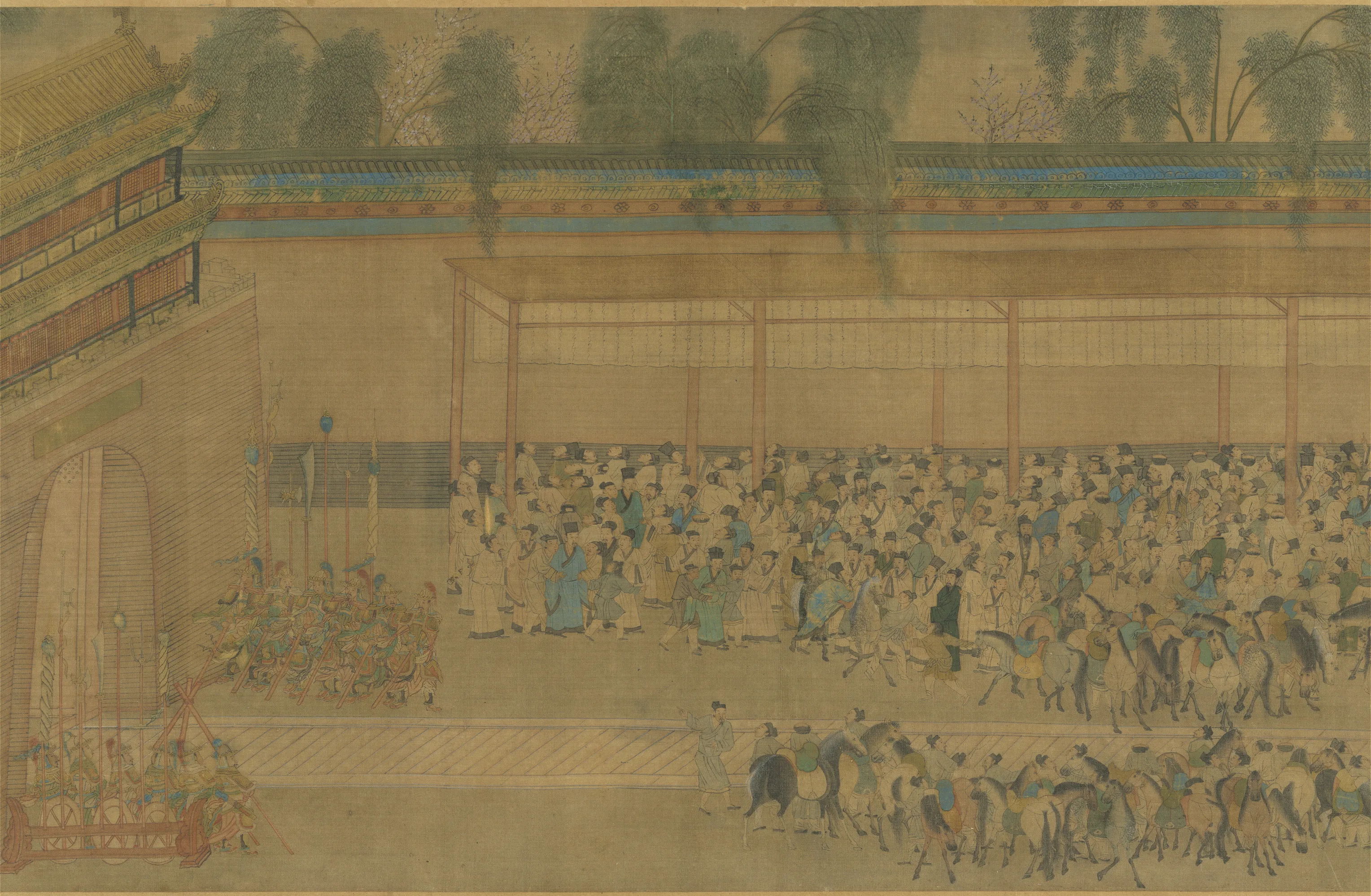What’s New, Rooby-Doo? (Applied Dilettantery S4E1)
Last updated: 7/17/2024 | Originally published: 3/15/2021
Well, that was a fun experiment. Unfortunately the results from our three month A/B test just came in and looks like it’s a no-ship. (That’s a joke, albeit an unfunny one.) My goal was to encourage myself to write more fiction — I have a goal to write 12 short stories this year, after all — but I also wanted to write good short fiction, which isn’t exactly easy with a weekly deadline and much else to do.1 So for these short stories I’m going to take a step back and focus on actually, y’know, polishing them. Anyway, at this point, I need encouragement to write non-fiction instead!
So, with that, we finish off the short-lived season 3 and begin season 4, bringing this newsletter back to its original function — exploring the random ideas floating around this dilettante’s head. For now I plan not to be too prescriptive about the structure, but expect lots of Fun Facts™️. I hope to continue pressing “publish” once a week — that was another yearly goal of mine — though that also means these editions will be slimmer than formerly.
So, without further ado…

What Have You Been Up To, Anyway?
I’ve dribbled life updates slowly over the course of many newsletters, but I haven’t given a solid life update in a “hot minute”, as the kids say. So:
- I’m still an iOS engineer at Asana.2
- I shelved the book I was working on — I took a crack at cleaning up the first draft, struggled, decided to throw it out and start a second draft, barely managed two new chapters, then decided it might be better to take some time off it…
- … so I’m starting a different book instead 😂 This will be more of a sci-fi/thriller and I don’t “care” as much about it, so hopefully that makes it easier for me to, er, actually sell it someday. I’m currently drafting an outline and plan to spend April getting through a first draft (NAprilWriMo?).
- My quest to read 52 books per year is coming along — so far I’ve read 13 this year, with another close to completion. My attempt to watch 52 films this year is not going quite so well.
- Sherry and I took up tennis a few months ago, which has been lovely, since it’s one of the few activities that is essentially unchanged by the pandemic. We also took a couple weekend trips to Tahoe to go skiing (for the first time, in my case), which is also relatively unchanged — I’m happy to say I enjoy going down moderately-difficult greens already, although I don’t love how much logistics is required to get up the mountain. We also tried snowshoeing, which is nice, even if it’s really “just” hiking.
- And, of course, I still walk Rooibos 2-3 times a day.
If We Are Kind And Polite, The World Will Be Alright
Paddington 2 could be argued to be a thoroughly Neo-Confucian text. The course of the film follows our beloved talking bear protagonist as he tries, in an act of filial piety, to obtain a birthday gift for the ailing aunt that raised him as a mother. Unfortunately, he is framed for stealing a one-of-a-kind pop-up book, and he is arrested and jailed with England’s most wanted criminals. Will his experiences finally break the poor bear down?
No, of course not! Paddington is a noble sage, meeting every challenge with his motto of “if we are kind and polite, the world will be alright,” cultivating such ethical behavior that he makes the world metaphysically better just by being in it. And, indeed, we see him single-handedly reform the English prison system through a series of acts of small kindnesses, while outside, his adopted human family and their neighbors, away from his always-cheerful presence, begin to rudely snipe at each other and let the small day-to-day worries bring them down — at least, until Paddington inevitably escapes and the real culprit is brought to justice. But Paddington ends up in a coma, which is not particularly conducive to getting a gift, so he awakes having missed his aunt’s birthday — but his family, friends, and new prison pals have gotten something even more special, in one of my favorite scenes in all of cinema.
What I’m trying to say is, Paddington 2 is a masterpiece and you should watch it.
A Good Samurai Will Parry The Blow
I’ve been thinking a lot about Neo-Confucianism lately because of a book called The Last Samurai, which ironically has very little to do with samurai. Rather, one could argue that The Last Samurai has much more to do with one of the main tenets of Neo-Confucianism — in fact, arguably the central tent — which is the inherent perfectibility of human beings. Yes, perhaps some of us are born with more virtue than others, but anyone can, in theory, cultivate virtue, or so says Song dynasty scholar Zhu Xi anyway.
In Helen DeWitt’s The Last Samurai, we meet Ludo, age 11, a child prodigy who has learned a dozen or so languages and who casually references The Iliad, the Prose Edda, and Seven Samurai, all in their original languages. Some reviewers, when the novel came out in the early 2000s, find it off-putting, a showy example of “knowledge porn”. But, if Ludo is truly a prodigy, he is primarily prodigious in his curiosity, cracking open the Ancient Greek text of The Iliad at age 3 and demanding his put-upon, albeit highly-intelligent, mother Sibylla teach him. As he learns to distinguish Greek characters, so do we, and, as Daniel Walden notes in his excellent essay “Merit, Access, and Swordsmanship”, this makes it
“among the most thoroughly democratic novels any of us will ever read, because it does not distinguish between its two protagonists’ extraordinary intelligence and their extraordinary circumstances. In its pages readers learn to distinguish enough Greek and Hebrew and Japanese that we come to believe in the possibility that we might know these languages and many more in their entirety… DeWitt poses the question in a radical way: what if our society were organized so that people could both produce and enjoy whatever they wanted? What if we prioritized the idea that people should be able to do and experience the things that bring them joy? What if the resources to satisfy a child’s endless curiosity were available to every child (and indeed to every parent of a child)? We do not live in such a world, but after reading Helen DeWitt’s masterpiece of a novel, I am convinced that it is the world that ought to be, and the one we ought not to rest from building.”
Zhu Xi would likely nod right along — any of us could perfect ourselves, given space, given time, given a society structured to allow it.
Anyway, I knew I was going to love The Last Samurai, since DeWitt’s “On Being Stalked” is my favorite essay of all time, and also the acknowledgments at the front have a shoutout to both Language Log and Language Hat, two of my favorite websites. Perhaps it is destined to remain always a cult classic — but boy, am I a member of that cult.
In The Spirit Of Perfecting Oneself
I forgot how much I loved learning languages! Inspired by The Last Samurai, I’m diving headfirst back in, with the help of a spaced-repetition set of Anki flashcards. First up, I would like to finally learn to read a reasonable number of Chinese characters, with the hope that all that vocabulary would help me actually speak the language too 🙂 I also have a set of hiragana and katakana flashcards and I signed up for kanji-learning site Wanikani (using the excellent Tsurukame app), because why not? A fifteen-minute investment per day will teach me brand new things I did not know yesterday.
On a similar note, I “obtained” a copy of Classical Chinese for Everyone, which seems to be aimed primarily at upper-year undergraduates taking their first course in Classical Chinese (aka literary Chinese). Learning a dead language has a benefit — there’s no requirement to actually speak it, which means there’s no requirement for fluency, which means you can spend as long as you want figuring out what a sentence says, treating them more like a little puzzle to be solved.
This is a bit of a… strange textbook, in some ways — there’s more than a few asides that seem irrelevant to the task of “learning Classical Chinese” — but it is nice that it teaches the basics of grammar using excerpts from the Analects and Daodejing, so I can now make sense of the Daodejing’s famous opening line, 道可道也,非恒道也。It’s also already paying fun fact dividends. For instance, if you speak Modern Standard Mandarin, you probably know 是 as a copula like “is” in English — it links a subject to a subject complement that describes the subject. But that’s not true in Classical Chinese — that role is more-or-less taken up by 也. Instead, in Classical Chinese, 是 acts more like a pronoun, used to refer to “all that stuff I was just talking about”! What!
On a similar similar note, here’s a fun website called Amarahasa where you can learn Sanskrit-in-romanization by reading very simple takes on famous tales like the Ramayana. Surprisingly, it’s a lot of fun, and it seems (?) to actually work! (Or, at least, I’ll never forget what “na sukhi” means.)
On a tangentially language-related note, I was recently amused to learn of the existence of English As She Is Spoke, a 19th-century book purporting to be a Portuguese-to-English conversational phrasebook that contains such useful English phrases as “to craunch a marmoset” and “the walls have hearsay”.
Also tangentially language-related and amusing: OpenAI’s latest image recognition is so good at reading English text that it, uh, is rather easy to fool.
What’s New, Rooby-Doo?
Welcome to a new recurring segment, What’s New, Rooby-Doo?, in which we ask Rooibos what’s new and he answers in his own words (barks? howls?). So, what’s new, Rooby-Doo?
awoooo
Oh dear, it seems Rooibos did not particularly enjoy his trip to Tahoe, even if he did like having a bit more space to run around in, and took to howling in protest at night. Luckily he hasn’t kept that up since returning, but it’s terrifying to know it could restart at any minute…

Footnotes
-
Season 3 also, er, lost me followers 😅 ↩